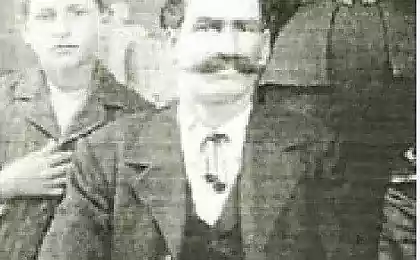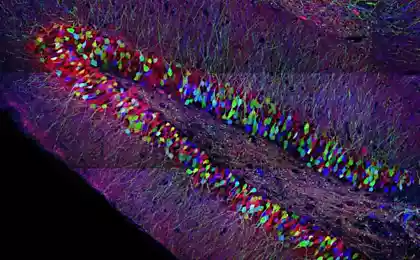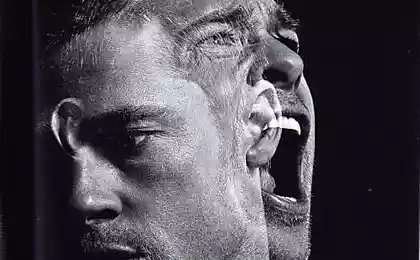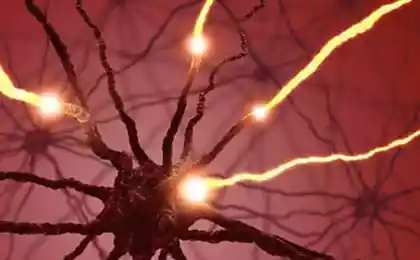451
A dissociative state as a defense mechanism
Disassociation is a condition where strong emotions and experiences are excluded or shut out from consciousness. For example, if you can't remember the name of his longtime abuser, the memory dissociative or split off from consciousness.
Dissociation may occur as a protective mechanism for experiencing at the moment or in the past psychological trauma.
The dissociative state can also be caused by migraines or the intake of drugs.
In addition, some people can spontaneously enter into a dissociative state, without the presence of external factors.
Sixty million seven hundred eleven thousand ninety seven
Consider the clinical manifestations of dissociation.
1. Mental (psychological) stupefying
Mental stupefaction is a condition in which a person feels a certain detachment and detachment from life. In this state man is hard to experience any emotion: love, joy, affection and even anger. Classes that previously brought joy, now that kind of carry.
Stupefaction can be seen as a psychological defense mechanism that excludes all possible senses to get rid of painful sensations.
2. A weakened perception of the world
The person may simply not notice or not to respond to people and events around you. About this man saying that "he is in his own world', 'in the fog", "off", etc.
As in the case of stupefying, it's a way to get rid of the unpleasant sensations associated with the trauma.
3. Derealization
Under derealization understand the perceptual disorder in which the outside world seems strange or unreal.
Many people often experience mild derealization. So, people can Wake up and not immediately understand where he is or what day it is. Or, for example, after watching an interesting and strange movie, people out on the street and the people and objects around him seem unfamiliar, different, unreal.
Situation svyazannie with the feeling of acceleration or deceleration time can also be attributed to manifestations of derealization.
Nine million two hundred seventy four thousand one hundred two
4. Depersonalization
Depersonalization reminiscent of derealization, but the difference is that the captcha does not seem the world, and perception of the own body, the integrity of self.
An example of depersonalization can be a situation when the individual seems that his body split into pieces, or part of it loses sensitivity, warming, or, conversely, cold. Also in depersonalization, the person may not find its reflection in the mirror. Another example is out-of-body experiences associated with the sensation of leaving their body and often accompanied by watching him from the side.
And derealization, and depersonalization a common phenomenon experiencing at least life up to 74% of the population. The majority of the cases occurs during traumatic events.
Thirty nine million nine hundred eighty seven thousand nine hundred one
5. Amnesia
Amnesia often occurs during stress it is impossible to remember the details of some traumatic event, attack or accident. Such amnesia is called psychogenic and represent the reaction of the flight (displacement) to situations trauma or stress. In most cases, memory returns with time.
It is also worth to distinguish organic amnesia is when memory loss associated with head injuries, alcoholism, poisoning drugs and other substances.
Also interesting: Cognitive blindness
Lazy brain: the enemy within
6. Dissociative Fugue
One type of amnesia is dissociative Fugue. Patient dissociative Fugue-suddenly leaves for a new place and forget all the information about yourself, including name and place of residence. Memory for generic information (literature, science, etc.) is stored. Also retained the ability to remember new. Patients can invent a new biography, name, find a new job and do not suspect about their illness. With the exception of amnesia, the person with a Fugue behave quite normally.
Dissociative Fugue may last from several hours to several months. Memory usually returns suddenly. In this way a person can forget events occurring during the Fugue.published
P. S. And remember, only by changing their consumption — together we change the world! ©
Source: psychojournal.ru/article/241-dissociativnye-sostoyaniya.html
Dissociation may occur as a protective mechanism for experiencing at the moment or in the past psychological trauma.
The dissociative state can also be caused by migraines or the intake of drugs.
In addition, some people can spontaneously enter into a dissociative state, without the presence of external factors.
Sixty million seven hundred eleven thousand ninety seven
Consider the clinical manifestations of dissociation.
1. Mental (psychological) stupefying
Mental stupefaction is a condition in which a person feels a certain detachment and detachment from life. In this state man is hard to experience any emotion: love, joy, affection and even anger. Classes that previously brought joy, now that kind of carry.
Stupefaction can be seen as a psychological defense mechanism that excludes all possible senses to get rid of painful sensations.
2. A weakened perception of the world
The person may simply not notice or not to respond to people and events around you. About this man saying that "he is in his own world', 'in the fog", "off", etc.
As in the case of stupefying, it's a way to get rid of the unpleasant sensations associated with the trauma.
3. Derealization
Under derealization understand the perceptual disorder in which the outside world seems strange or unreal.
Many people often experience mild derealization. So, people can Wake up and not immediately understand where he is or what day it is. Or, for example, after watching an interesting and strange movie, people out on the street and the people and objects around him seem unfamiliar, different, unreal.
Situation svyazannie with the feeling of acceleration or deceleration time can also be attributed to manifestations of derealization.
Nine million two hundred seventy four thousand one hundred two
4. Depersonalization
Depersonalization reminiscent of derealization, but the difference is that the captcha does not seem the world, and perception of the own body, the integrity of self.
An example of depersonalization can be a situation when the individual seems that his body split into pieces, or part of it loses sensitivity, warming, or, conversely, cold. Also in depersonalization, the person may not find its reflection in the mirror. Another example is out-of-body experiences associated with the sensation of leaving their body and often accompanied by watching him from the side.
And derealization, and depersonalization a common phenomenon experiencing at least life up to 74% of the population. The majority of the cases occurs during traumatic events.
Thirty nine million nine hundred eighty seven thousand nine hundred one
5. Amnesia
Amnesia often occurs during stress it is impossible to remember the details of some traumatic event, attack or accident. Such amnesia is called psychogenic and represent the reaction of the flight (displacement) to situations trauma or stress. In most cases, memory returns with time.
It is also worth to distinguish organic amnesia is when memory loss associated with head injuries, alcoholism, poisoning drugs and other substances.
Also interesting: Cognitive blindness
Lazy brain: the enemy within
6. Dissociative Fugue
One type of amnesia is dissociative Fugue. Patient dissociative Fugue-suddenly leaves for a new place and forget all the information about yourself, including name and place of residence. Memory for generic information (literature, science, etc.) is stored. Also retained the ability to remember new. Patients can invent a new biography, name, find a new job and do not suspect about their illness. With the exception of amnesia, the person with a Fugue behave quite normally.
Dissociative Fugue may last from several hours to several months. Memory usually returns suddenly. In this way a person can forget events occurring during the Fugue.published
P. S. And remember, only by changing their consumption — together we change the world! ©
Source: psychojournal.ru/article/241-dissociativnye-sostoyaniya.html























